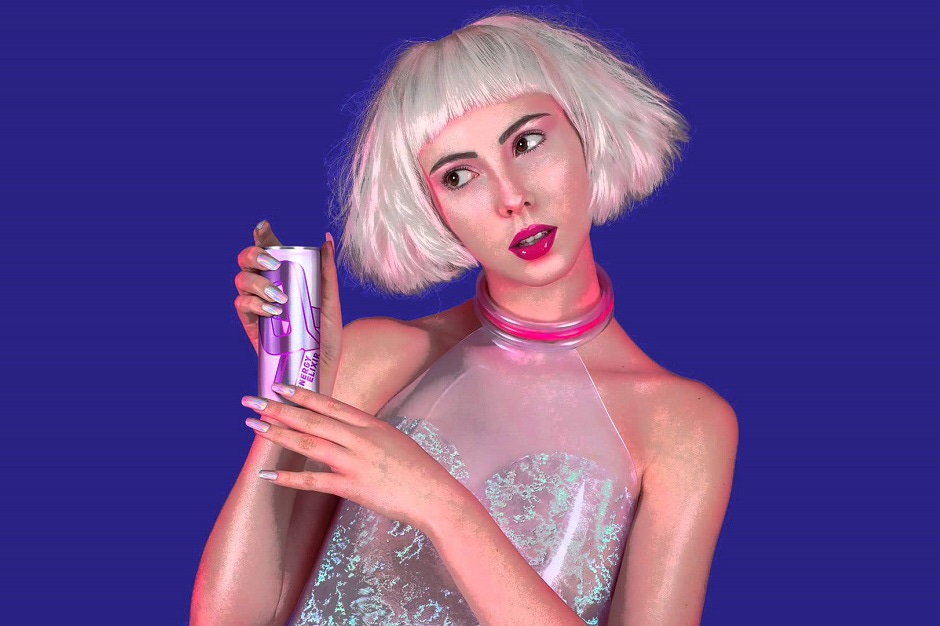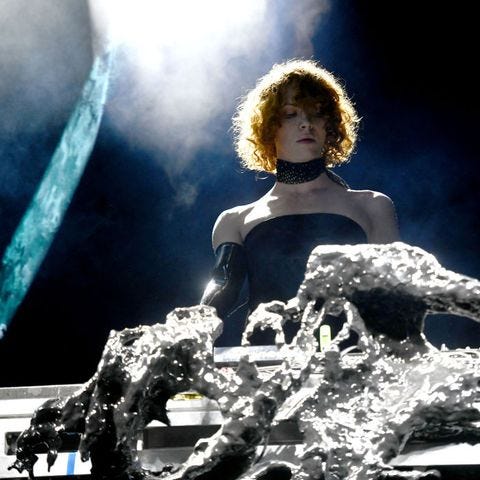idle gaze 011: SOPHIE & the power of cultural juxtapositions.
The artist was a reminder of the limitless potential of connecting the unexpected.
When copy and pasting has become the main code of conduct, SOPHIE’s output was an ode to the game-changing creativity born out of unexpected combinations.
Nearly ten years ago, the cultural critic and writer Kirby Ferguson released the documentary series Everything is a Remix: a look at how impactful creativity isn’t about coming up with ideas from thin air. Whether it’s sampling in music or copying technological innovations, creativity always builds on what came before, applying ordinary tools of thought to existing materials.
In the documentary, Kirby explores the 3 basic elements of creativity: copy, transform and combine. He eventually argues that some of history’s biggest breakthroughs were achieved not so often by copying and transforming, but rather by the more transformative act of combining: connecting seemingly unrelated ideas together, making courageous creative leaps.
Despite this, the act of copying has become the modus operandi in popular culture, business and advertising. Ideas are often liberal on direct references, but low on the kind of original combinations that move the needle.
A few weeks ago, SOPHIE, the influential British producer who moulded electronic music into bracingly original avant-garde pop, died in an accidental fall.
SOPHIE was a north star for new and exciting combinations - developing an idiosyncratic sound like no other. As Sean O’Neill’s obituary noted: “SOPHIE’s creative process involved taking the fundamental elements of music and morphing them into something wholly new.”
SOPHIE’s breakthrough hit BIPP drew on 90’s Europop, reshaped and reimagined as a futuristic club music artefact. Tracks like Faceshopping mix equal parts glossy hyper-pop and with strange and aggressive noises like bubbles, metal scratching and rubber stretching to hypnotic effect.
The artist’s sound grew from the murky soil of bedroom producer subreddits, the dark forests of SoundCloud, slowly but steadily germinating in sweaty basements across Dalston and Brooklyn throughout the later part of the noughties. Sophie was often associated with PC Music, a collective with a manifesto built on flouting the rules of mainstream music production.
But at the same time, SOPHIE embraced hyper-commercialism as an art form. Together with A.G Cook and HFD, SOPHIE launched QT, a fictional pop star and living embodiment of a semi-fictitious energy drink brand called DrinkQT.
SOPHIE’s fans revelled in her commercial indulgence. When the artist’s track Lemonade was used to sell McDonald’s lemonades, SOPHIE stans flooded the comments section with heartfelt encouragement: “honestly this is still the most iconic thing SOPHIEs ever done” and “yasss SOPHIE work in that Mcdonald’s deal”. Crack Magazine joked that “SOPHIE is the only artist in the world who can play an Amazon-sponsored music festival and make it look like a winking inside joke.” Asked by Billboard to commit to a specific genre, SOPHIE famously quipped “advertising”.
When most are set on copying, SOPHIE has become a reminder of the greater potential that comes from taking greater creative leaps, juxtaposing the unexpected and fusing seemingly contrasting elements. An untimely death, but at the same time an optimistic reminder that transformational creativity is still very much alive, where the boundaries between artistic genres are blurred, where ironic corporate commercialism and sincere boundary-pushing experimentation aren’t polar opposites, but two sides of the same coin.






